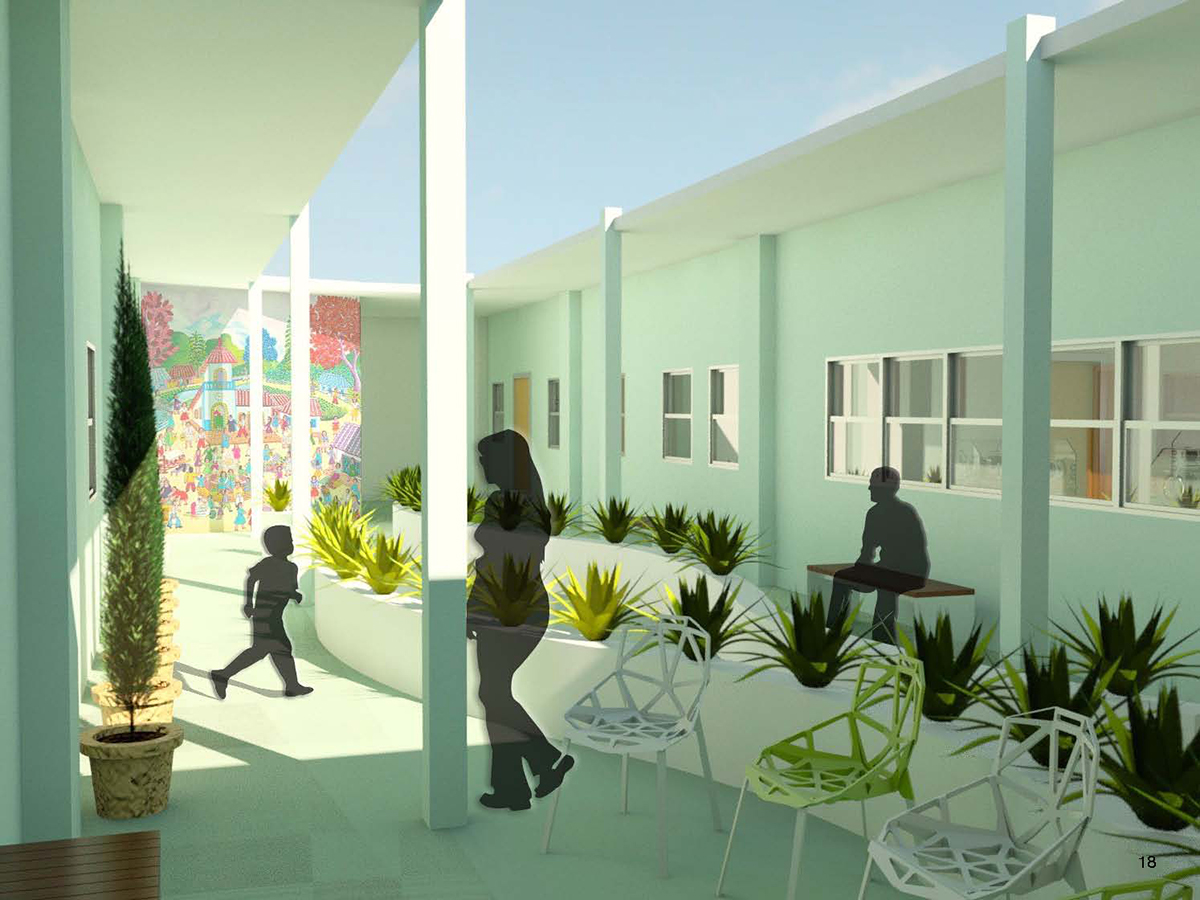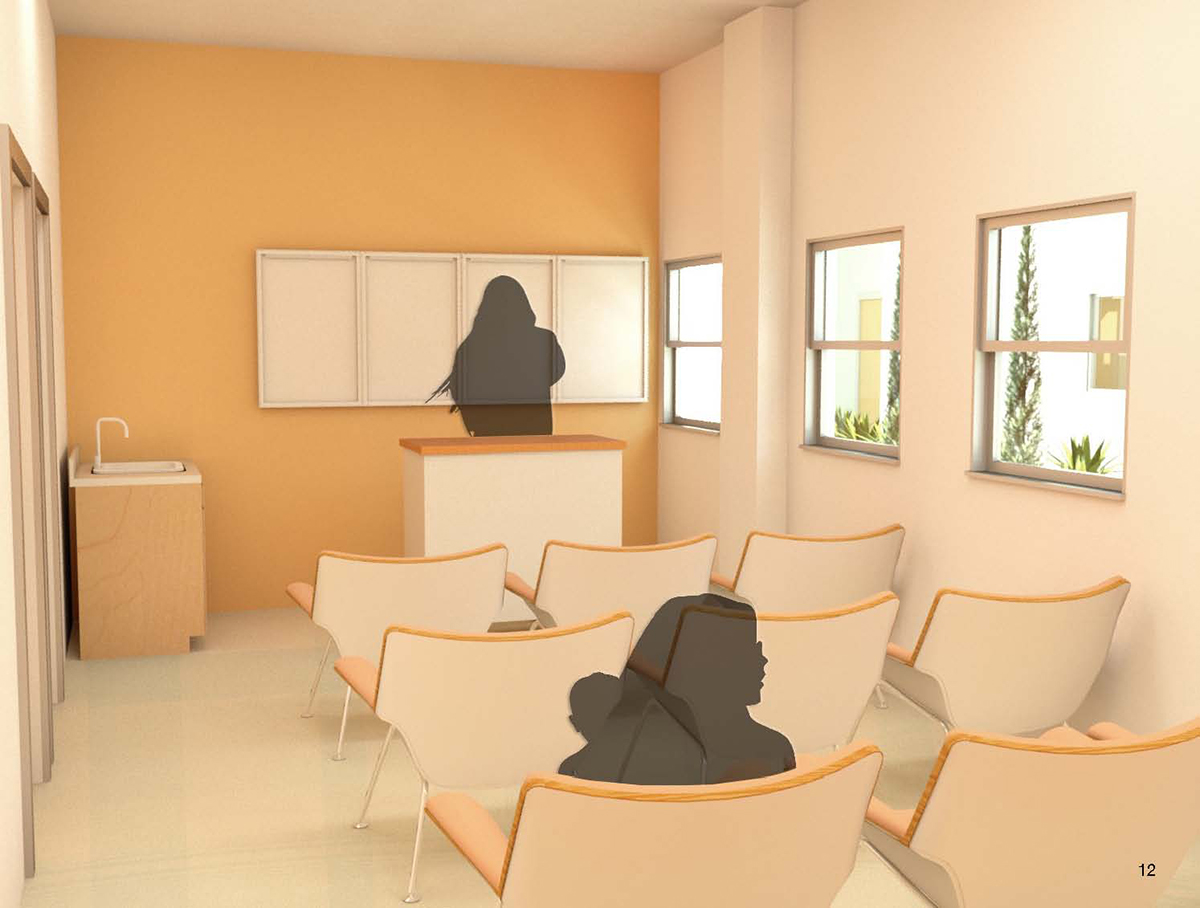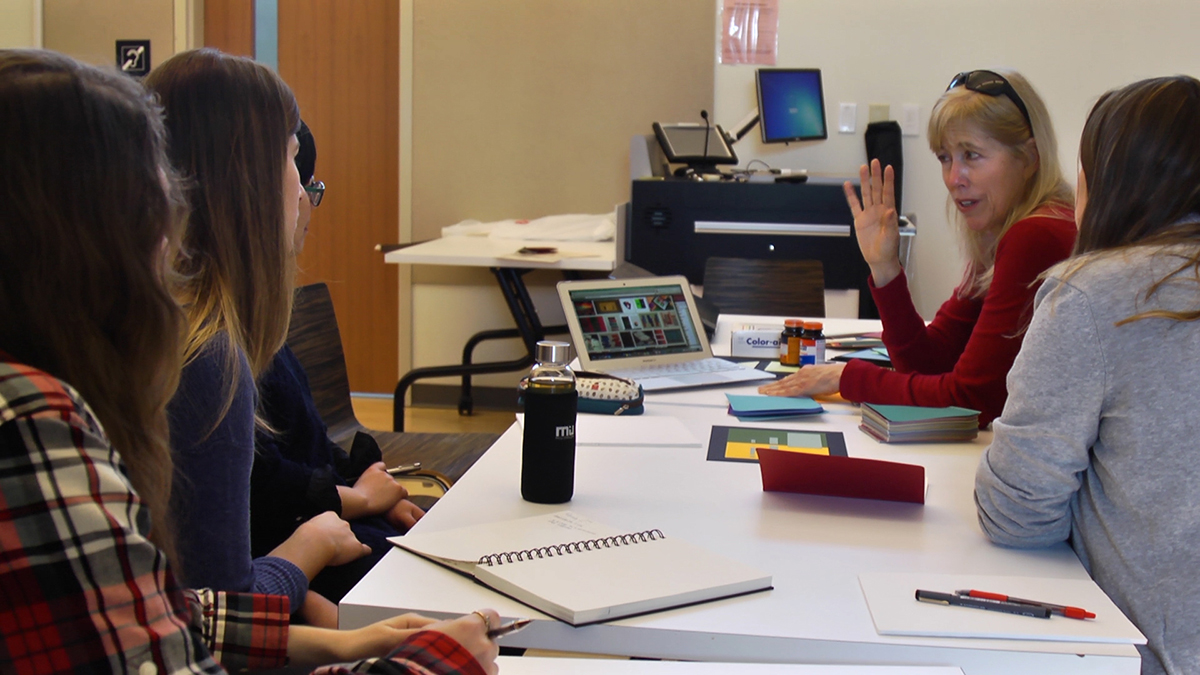Student designs address overcrowded Honduran hospital
By Sherrie Negrea

In Tegucigalpa, Honduras, 56 percent of infants born needing medical intervention die due to a shortage of space to care for them in the city’s largest public hospital.
With the help of six students taking a Cornell design studio this spring, however, there is hope babies born prematurely or with defects will soon be treated in an expanded neonatal intensive care unit at Escuela Hospital in the Honduran capital.
Students in the Health & Healing Studio in the College of Human Ecology created three sets of designs for a new 4,200-square-foot wing on the hospital’s sixth floor. The addition will accommodate 20 premature infants and a clinic where mothers will learn how to take care of their infants after discharge. A fundraising campaign is underway, with plans to begin construction by late 2016.
“The students’ work has saved us resources of time and finances that would have to have been invested in the development of interior design for our new hospital wing,” said Katie Castro, executive director of Little Angels of Honduras, an upstate New York nonprofit that is spearheading the project. Castro founded the group after she gave birth to a baby in Honduras who had multiple birth defects and died after being transferred to a hospital in Texas in 2013.
Mardelle McCuskey Shepley, a professor in the Department of Design and Environmental Analysis who teaches the course, began working with Little Angels after she published her most recent book, “Design for Pediatric and Neonatal Critical Care.” Christian Perry, a designer and co-founder of the nonprofit, recruited Shepley to help him with hospital design projects in Honduras. When Perry visited Cornell last year, Shepley offered to incorporate the Escuela Hospital project into her spring design studio.
While student pairs focused on different aspects of the design, each team created a space for the Kangaroo Mother Care program, which promotes skin-to-skin contact between a mother and her newborn, breastfeeding and early hospital discharge. Developed in Colombia in 1982, the technique has been shown to reduce infant mortality, severe infections and diseases.

Mothers following the protocol achieve the greatest benefit if they have round-the-clock access to hold their babies. Because of severe overcrowding at Escuela Hospital, however, mothers can only use the technique an average of four hours a day. Designed for 7,000 births annually, the hospital recorded nearly 22,000 births in 2013.
The students also proposed women relieve stress by visiting a garden in a central courtyard. “We tried to create a healing environment through the connection between nature and the indoor space,” said Ming Chi, MLA ’17, a landscape architect from China.

Chi’s design for the courtyard includes a “blessing tree” to which the mothers could attach pieces of paper with their babies’ names on them. After researching native plants, Chi suggested the hospital use either a royal poinciana or a “holy wood” for the courtyard.
Ayda Uraz ’16, a design and environmental analysis major, designed the courtyard with a dry fountain filled with flowers and vines, to suggest the presence of water, which isn’t allowed in the space because of its potential to spread bacteria. “Just the thought of water creates a healing process,” Uraz said.
Although the students didn’t travel to Honduras, they worked with Perry and Castro and researched various aspects of the country’s culture and its health care materials to support their plans. “We didn’t just create these designs because we think these are great ideas,” Uraz said. “We did the research to back them up and went through multiple iterations, so we did a lot of the ground work for them.”
Shepley plans to enhance the partnership next year with funds from an Engaged Cornell award that will allow the studio to travel to Honduras to visit the hospital and collaborate with Little Angels on additional design proposals for the space.
Sherrie Negrea is a freelance writer.
Media Contact
Get Cornell news delivered right to your inbox.
Subscribe